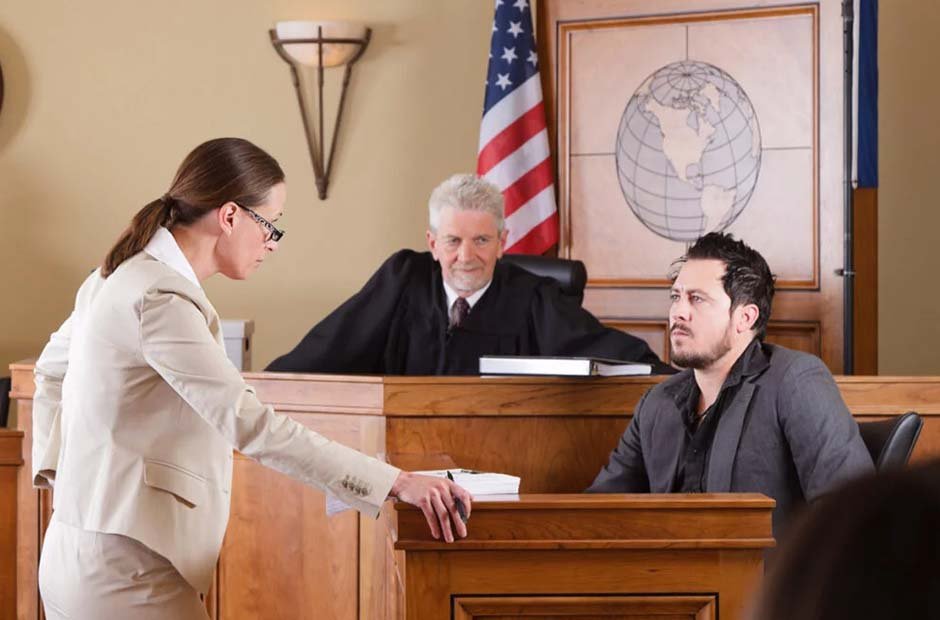Navigating deportation processes can be daunting, and understanding the role of deportation immigration lawyers is crucial for those affected. Deportation immigration lawyers specialize in helping individuals facing removal from the country understand their rights and the legal remedies available to them. We aim to highlight the importance of having knowledgeable legal support during such challenging times.
Deportation proceedings often involve complex layers of immigration law that might be overwhelming for those without legal expertise. Our lawyers are equipped with the latest information and strategies to advocate effectively on behalf of clients. Having an experienced deportation immigration lawyer can make a substantial difference in the outcome of a case, potentially preventing removal or finding alternative legal solutions.
For individuals and families dealing with the stress and uncertainty of deportation, having a dedicated legal advocate provides much-needed reassurance and support. Our goal is to give our clients the best chance of staying united with their loved ones and remaining in their chosen home. Understanding these services is the first step toward securing peace of mind and stability. learn more about deportation immigration lawyers.
Understanding Deportation and Removal Proceedings
Deportation and removal proceedings can be complex and daunting for immigrants. Here, we detail the process, legal considerations, and the rights and protections for those facing removal from the United States.
The Process and Legal Framework
The deportation process begins when the Department of Homeland Security (DHS) issues a Notice to Appear (NTA). This document outlines the reasons for deportability and starts formal removal proceedings. Immigrants must attend hearings in immigration court, presided over by an immigration judge.
In the initial hearing, the judge may ask the respondent to confirm their immigration status. Deportation cases are heard under immigration law and policies, which include various grounds for deportability. A qualified deportation defense attorney can be crucial in navigating these legalities and preparing a robust defense strategy.
Rights and Protections for Immigrants
Those facing deportation have specific rights under U.S. immigration law. Immigrants have the right to legal representation, although the government does not provide it. It’s vital to hire a skilled deportation immigration lawyer who can offer expert guidance and representation.
Immigrants also have the right to present evidence, challenge the charges against them, and request relief from removal. Relief options include asylum, cancellation of removal, withholding of removal, and protections under the Convention Against Torture. Proper understanding of these options can significantly impact the outcome of a deportation case.
Common Grounds of Deportability
Several grounds can lead to deportation, including criminal convictions, immigration violations, and accusations of fraud. Aggravated felonies and other serious crimes often result in mandatory detention and expedited removal processes.
For those accused of immigration violations, such as overstaying a visa or unlawful entry, the process can be complicated. Various waivers of inadmissibility may be available to mitigate some violations. Accusations of fraud, such as false claims to U.S. citizenship, carry severe penalties and can lead to deportation.
Understanding these common grounds is essential. Legal representation from experienced deportation immigration lawyers can provide significant help in fighting these charges and securing a favorable outcome in deportation proceedings.
Navigating the Legal System with Deportation Immigration Lawyers
Navigating immigration laws requires specialized knowledge. Deportation immigration lawyers play a crucial role in providing legal counsel, building strong defenses, and appealing adverse decisions.
Role of Deportation Defense Attorneys
Deportation defense attorneys are essential in representing individuals facing removal from the U.S. These lawyers offer legal representation throughout the deportation process, ensuring that clients understand their rights and options. They manage all aspects of deportation cases, from initial hearings to appeals, and often serve as a vital source of support and guidance.
Experienced immigration attorneys can challenge evidence, question witness credibility, and present arguments to the Immigration Judge. They aim to prevent deportation by utilizing various defense strategies. Compassion and dedication are key attributes that help these attorneys provide effective and empathetic support to clients in distressing situations.
Building a Strong Deportation Defense
Creating a strong deportation defense involves thorough preparation and a comprehensive understanding of immigration law. Our deportation lawyers review each case meticulously to identify potential defenses such as adjustment of status or voluntary departure. They compile necessary evidence, identify inconsistencies in the government’s case, and prepare clients for court appearances.
Inadmissibility issues are often a major focus. Attorneys also handle motions to reopen or reconsider cases if new evidence arises. By crafting well-developed defense strategies, immigration lawyers can significantly improve a client’s chances of avoiding deportation. This step-by-step approach ensures that every possible avenue of relief is explored.
Immigration Relief and Appeals
Relief from removal and appeals are critical components of the deportation process. Our immigration lawyers assist clients in seeking relief options like asylum, cancellation of removal, or legalization and registry. Each option requires specific forms of evidence and documentation that a skilled attorney can expertly prepare and present.
If an initial decision is unfavorable, deportation defense attorneys can file appeals with the Board of Immigration Appeals (BIA) or the U.S. Court of Appeals. They may also submit motions to reopen or reconsider denied cases. Successful appeals often hinge on the attorney’s competence in presenting compelling arguments and identifying legal errors in the original decision.
















